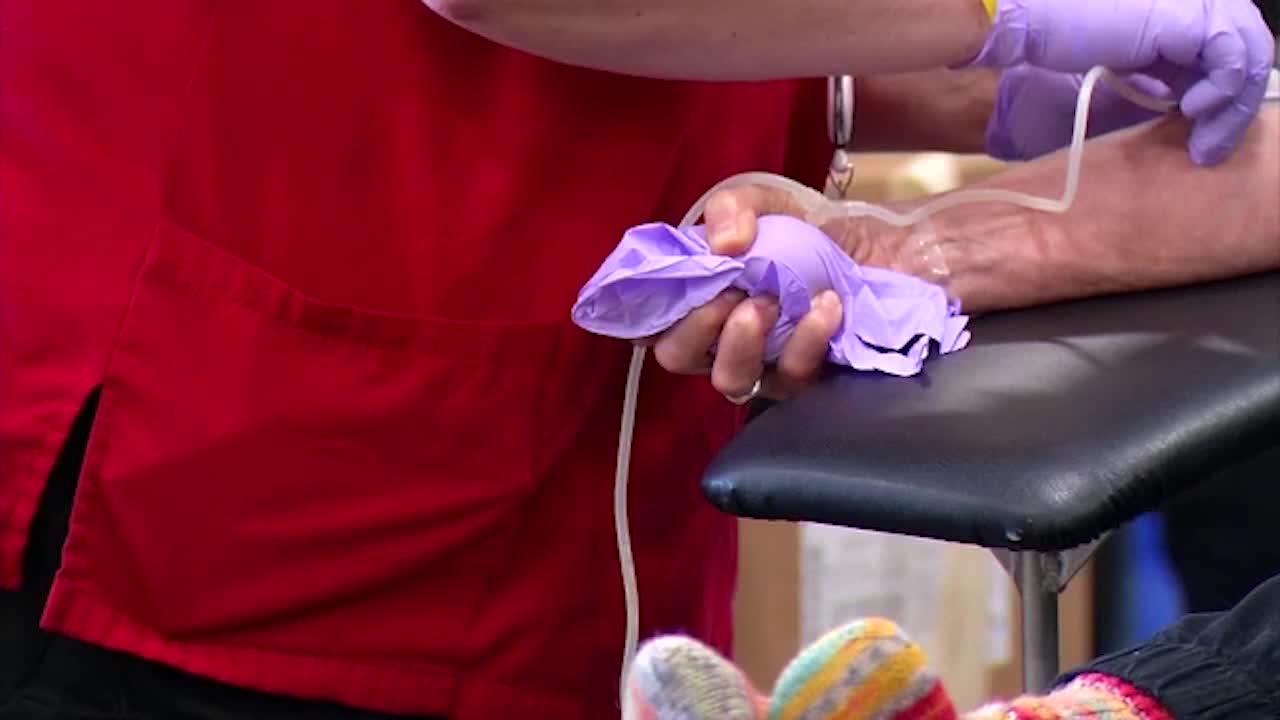Blood
Red Cross declares national blood shortage, seeks donors
Hospitals in the metro are “closely monitoring” their blood supply after the American Red Cross declared a national blood shortage this week.
It’s the first time in 18 months the organization has put out an alert on this scale, warning that the nation’s blood supply is “critically low.”
“When we go to the media to help get the word out, it’s a serious situation,” said Sue Thesenga, regional communications manager at the American Red Cross.
Thesenga said nationwide donations have dropped 25% in the last month, due in part to one of the busiest summer travel seasons on record and natural disasters like Hurricane Idalia, which slammed the southeast a few weeks ago.
“All blood types are needed, but there’s an emergency need for Type O and platelet donors,” Thesenga said.
The last time this happened about a year and a half ago, some Minnesota health care systems considered delaying non-emergency surgeries in order to preserve inventory.
5 EYEWITNESS NEWS reached out to hospital systems in the metro Wednesday to see if they are making any changes in their operations, due to the shortage.
Medical director of the Allina Health Laboratory, Dr. Lauren Anthony, said, “The impact we are seeing is that our blood suppliers are limiting how much blood and platelets they send to us because their shelves are low from reduced donations. The need for blood and platelets is constant and the only supply is from blood donors in our community. Hospitals need blood and platelets to treat patients with trauma, bleeding emergencies, cancer chemotherapy, and many types of surgery.”
She said they are watching the blood supply more carefully than usual but are not at the point of delaying surgeries or treatments at this time.
Hennepin Healthcare also has yet to make any changes to patient care, but Dr. Jed Gorlin said they are “concerned” by the recent shortfall.
“Blood centers like to see at least three to five days of inventory on our refrigerator shelves and we’re down to around two days of inventory,” Gorlin said. “At Hennepin, we are the largest of the three Level One trauma centers in the Twin Cities, so we need to have a fair inventory on the shelves for immediate transfusion. More donors would give me a lot more sleeping comfort because I would like to know we are prepared for any emergency.”
Hennepin Healthcare uses Memorial Blood Centers, which is also experiencing “inventory challenges.”
“We hope to get donors out to replenish that inventory,” Gorlin said. “That unit of blood you donate is the unit of blood that might be on the shelf if you get into a car accident tomorrow, so it’s worth not taking the supply for granted.”
Tom Meyer, from Woodbury, is a regular platelet donor at the American Red Cross, now celebrating his 800th unit donated.
Platelets are a blood product often used by cancer patients or those who suffer from sickle cell disease.
Meyer says he was one of the first donors at the Red Cross donation center in St. Paul back in the 1970s and now donates 24 times per year.
He has donated platelets more than 400 times and urges Minnesotans to become regular donors to help the cause and possibly save the lives of strangers.
“I think there’s a good chance I made a difference in a few lives somewhere along the way,” Meyer said. “If we can give those people more days with their family and friends, that’s a gift.”
The American Red Cross is offering new incentives to donors this month. Click here for more information.

